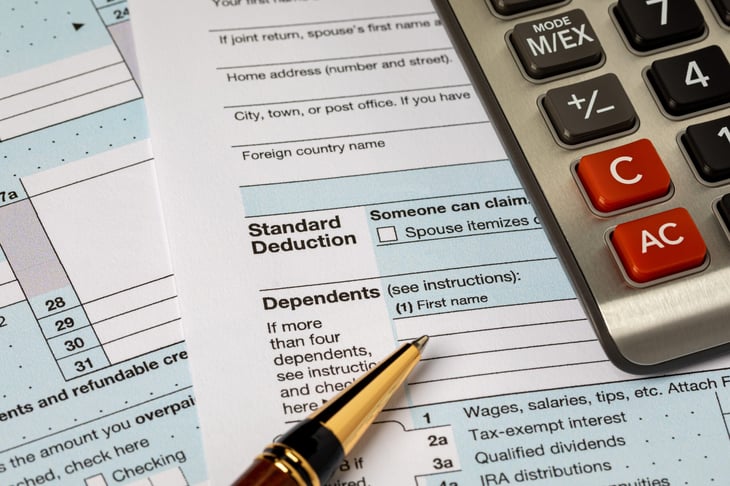As the Trump administration implements its economic policies, significant shifts could profoundly impact your retirement plans.
From proposed tax reforms affecting Social Security to changes in investment regulations, it’s crucial to understand how these developments may influence your financial future.
Staying informed and proactive is essential to navigate the evolving landscape and secure a comfortable retirement.
1. Modified Adjusted Gross Income (AGI) limits

The IRS has raised income thresholds for traditional IRA deduction eligibility across all filing statuses.
These higher limits should benefit single filers and married couples, allowing more investors to earn additional income while qualifying for valuable contribution tax deductions.
This adjustment helps more Americans reduce their taxable income while building retirement savings, even if they or their spouse participate in workplace retirement plans.
Pro Tip: With higher IRA income thresholds, now’s the time to maximize your retirement savings. But if you need extra cash, debt relief, or funding for a major expense, finding the right financial solution is just as important. Explore financial solutions here—fast, easy, and secure.
2. Medicare changes: Healthcare savings for retirement investing

Significant changes are coming to Medicare Part D and Medicare Advantage. A full list of changes is available at Medicare.gov, but two significant highlights can impact your monthly budget or contributions to retirement savings.
First, Medicare Part D prescription drug plans now feature a significantly reduced annual out-of-pocket maximum, providing a substantial financial opportunity to save thousands while budgeting more for retirement.
Second, Medicare Advantage (Part C) subscribers may experience reductions in coverage and allowances, which can impact their ability to contribute to retirement or negatively impact fixed budgets.
Pro Tip: Big Medicare changes could impact your budget—ensure you get the best coverage for your needs. Maximize your benefits, cut costs, and plan smarter for retirement with unbiased guidance. Compare plans today.
3. Secure Act 2.0 boosts retirement contributions

While tax-deferred accounts are a retirement planning staple, the SECURE 2.0 Act provides a strategic opportunity for those aged 60-63. You may be able to contribute either $10,000 or 150% of the standard catch-up amount (whichever is greater)—and potentially strengthen your retirement reserves significantly during your peak earning years.
Pay attention to automatic 401(k) and 403(b) plan enrollments.
New guidelines require automatic enrollment in your employer’s plan at 3% of pay, increasing annually by 1% until it reaches at least 10%, unless you opt out.
Pro Tip: Ensure you’re making the most of ways to boost retirement savings. If you have over $100,000 in savings, expert advice can help optimize your strategy. SmartAsset offers a free service that matches you with a vetted, fiduciary advisor in under 5 minutes.
4. Social Security adjustments might affect benefits

Social Security has long been central to retirement planning. Under Trump, potential reforms could include raising the full retirement age, adjusting cost-of-living increases, or modifying payroll taxes. These changes could impact retirees’ budgets in the future.
Relying solely on Social Security may not be enough to ensure long-term financial security. Building a diversified retirement income strategy—including savings, investments, and alternative assets—can help protect your finances.
Gold has historically been a hedge against economic uncertainty, making it a strong addition to a well-rounded retirement plan.
Pro Tip: Social Security changes could impact your financial future, but alternative assets can help protect your wealth. Consider an investment that hedges against recession and financial turmoil by opening a gold IRA.
5. Continued inflation may affect investment portfolios

Economic policies such as tariffs or deregulation could trigger market fluctuations under Trump, and experts believe that higher prices and interest rates will stick around. Retirees and near-retirees with investment-heavy portfolios should consider rebalancing assets to reduce risk.
Diversifying across sectors and increasing exposure to stable income-generating investments like bonds can provide greater financial stability.
Pro Tip: With market fluctuations and rising rates, diversifying your portfolio is more critical than ever. One modern approach is investing in real estate and venture capital. Platforms like Fundrise let you get started with as little as $10.
Stay flexible to safeguard your retirement

Retirement planning is about preparation and adaptability. By understanding potential policy changes and taking proactive steps, you can safeguard your financial future.
Staying flexible can keep your retirement plan on track, whether you’re maximizing contributions, diversifying investments, or planning for healthcare.





